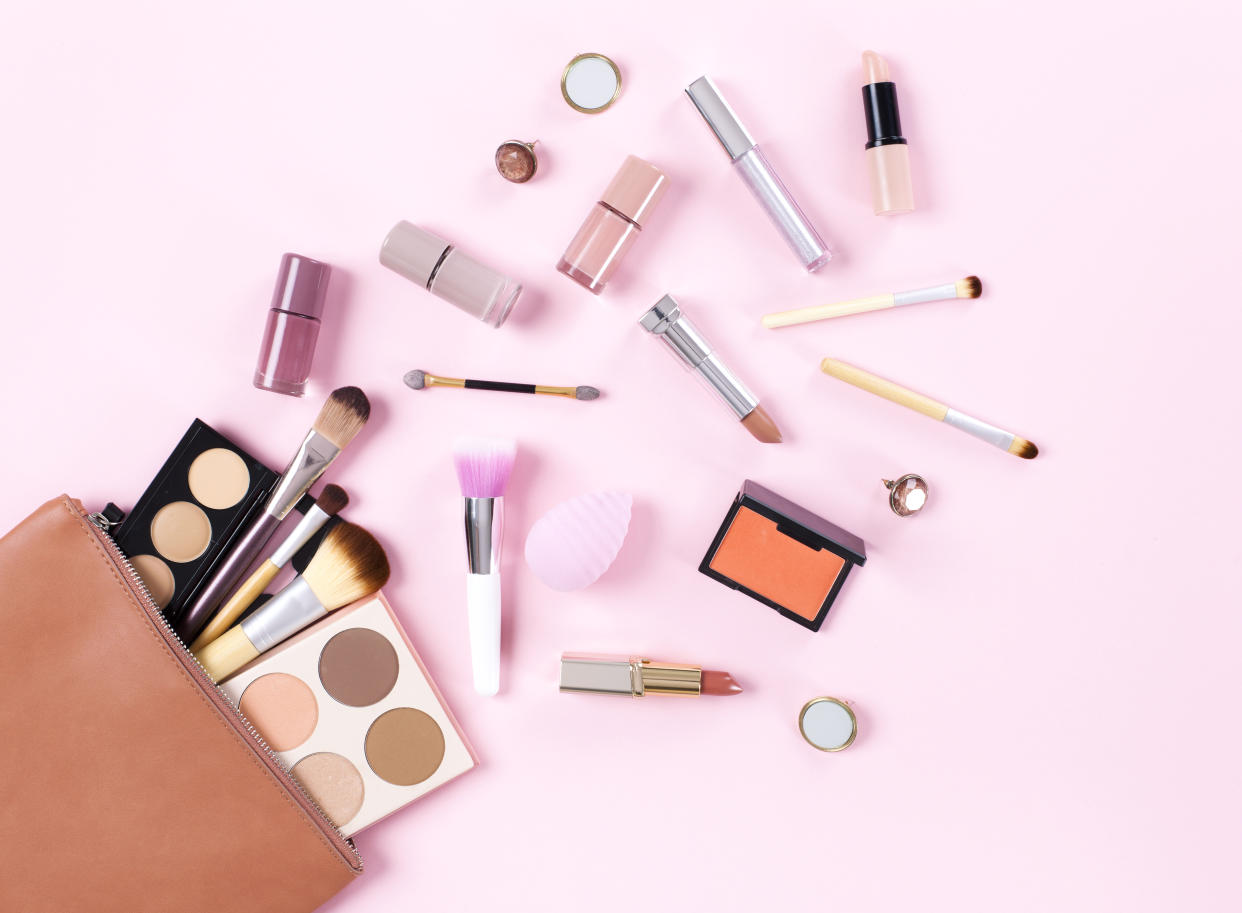Nine in 10 products in your make-up bag could be swarming with bacteria

As many as nine in 10 products in your make-up bag could be swarming with dangerous bacteria, research suggests.
Scientists from Aston University in Birmingham looked for microbial contamination in more than 460 donated lipsticks, lip glosses, eyeliners, mascaras and “beauty blenders”, sponges used to apply foundation.
READ MORE: Yes, You Need to Clean Your Makeup Brushes Weekly. Here's How.
They found between 79% and 90% of the make-up had detectable levels of bacteria, including E.coli.
Although usually harmless, certain strains can trigger diarrhoea, urinary tract infections and even pneumonia, according to the Centers for Disease Control and Prevention.
Staphylococcus aureus was also present. This has been linked to everything from wound infections to blood poisoning, with certain strains - like MRSA - not responding to common antibiotics, the UK government reports.
Beauty blenders were found to be the worst offenders, with more than a quarter (26%) having “faecal matter present on them”.
Nearly all (93%) of those donated had never being cleaned, the results - published in the Journal of Applied Microbiology - show.
Even when the sponges are scrubbed, failing to properly dry them before use could create the perfect breeding ground for damp-loving bacteria, the scientists warn.
More than half (64%) of the women involved also admitted to dropping their beauty blenders on the floor, only to pick them up and carry on.
READ MORE: What is antibiotic resistance - and when will it strike?
“Consumers' poor hygiene practices when it comes to using make-up, especially beauty blenders, is very worrying when you consider that we found bacteria such as E.coli - which is linked with faecal contamination - breeding on the products we tested,” cDr Amreen Bashir said.
With more than 6.5 million beauty blenders sold worldwide, the scientists worry the trend for contouring may be putting women at risk.
While many strains of the bacteria found can be harmless, make-up users are still putting themselves at risk if they apply contaminated products near their eyes, mouth, or any cuts or grazes.
Those with weakened immune systems, such as cancer patients on chemotherapy, may be particularly vulnerable.
READ MORE: 17 Net-a-Porter beauty products that are ~seriously~ worth the investment
The scientists are calling for more prominent expiry dates on make-up packaging, as well as cleaning instructions.
Brexit may also make the situation worse, with the UK no longer obligated to follow the EU’s strict hygiene standards, they warn. This states E.coli cannot be in any new cosmetic product sold, however, it does not take into account the risk of contamination during use.
In the US, cosmetic manufacturers are not obligated to put expiry dates on products.
“More needs to be done to help educate consumers and the make-up industry as a whole about the need to wash beauty blenders regularly and dry them thoroughly, as well as the risks of using make-up beyond its expiry date,” Dr Bashir said.
How to keep your make-up bacteria-free
To avoid bacterial contamination of your cosmetics, Dr Bashir recommends washing your hands and face before applying any products.
She also advises throwing away cosmetics once they pass their expiry date.
Keeping make-up brushes and sponges clean can also reduce contamination. For beauty blenders, Dr Bashir recommends rubbing them against a bar of soap under warm running water.
While it may sound obvious, she also stresses you should “never ever” share make-up.


